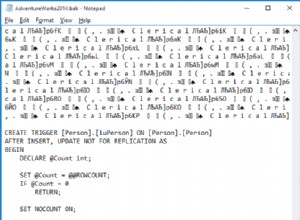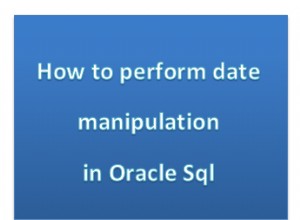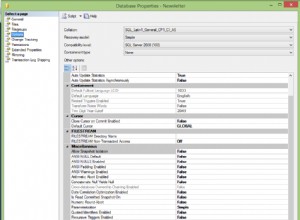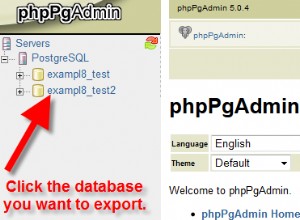Stai riscontrando aggregate fanout issue . Ciò si verifica ogni volta che la tabella primaria in una query di selezione ha meno righe di una tabella secondaria a cui è unita. Il join risulta in righe duplicate. Pertanto, quando vengono applicate le funzioni aggregate, agiscono su righe aggiuntive.
Qui la tabella primaria si riferisce a quella in cui vengono applicate le funzioni aggregate. Nel tuo esempio,
* SUM(matters.fee)>> aggregazione su tabella matters .
* SUM(advicetime*advicefee)>> aggregazione su tabella actions
* fixedfee='Y'>> dove la condizione nella tabella matters
Per evitare il problema del fanout:
* Applica sempre gli aggregati alla tabella più granulare in un join.
* A meno che due tabelle non abbiano una relazione uno a uno, non applicare le funzioni di aggregazione ai campi da entrambe le tabelle.
* Ottieni i tuoi aggregati separatamente tramite diverse sottoquery e poi combina il risultato. Questo può essere fatto in un'istruzione SQL, oppure puoi esportare i dati e poi farlo.
Domanda 1:
SELECT SUM(fee) AS totfixed
FROM matters
WHERE fixedfee='Y'
Domanda 2:
SELECT SUM(actions.advicetime*actions.advicefee) AS totbills
FROM matters
JOIN actions ON matters.matterid = actions.matterid
WHERE matters.fixedfee = 'Y'
Query 1 &Query 2 non soffrire di fanout. A questo punto puoi esportarli entrambi e gestire il risultato in php. Oppure puoi combinarli in SQL:
SELECT query_2.totbills, query_1.totfixed
FROM (SELECT SUM(fee) AS totfixed
FROM matters
WHERE fixedfee='Y') query_1,
(SELECT SUM(actions.advicetime*actions.advicefee) AS totbills
FROM matters
JOIN actions ON matters.matterid = actions.matterid
WHERE matters.fixedfee = 'Y') query_2
Infine, SUM non accetta una parola chiave DISTINCT . DISTINCT è disponibile solo per COUNT e GROUP_CONCAT funzioni aggregate. Quello che segue è un pezzo di SQL non valido
SUM(DISTINCT matters.fee) AS totfixed




